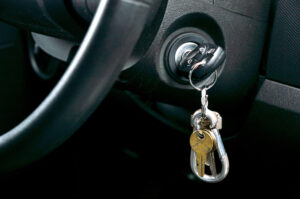
If you've had to install an ignition interlock device (IID) in your car as part of a plea deal for a DUI charge, you know how crucial it is to comply with its requirements. But what happens if you fail an ignition interlock test? Whether it's due to having a couple of beers with friends or another reason, the consequences can be severe.
Here, we'll explore the potential outcomes of failing an IID test and why it’s important to consult with a DUI attorney if this happens to you. For expert legal advice, contact Law Office of Michael L. Fell at (949) 585-9055.
Immediate Consequences of Failing an Initial IID Test
One of the most immediate consequences of failing an IID test is that your car will not start. Ignition interlock devices are designed to measure your blood alcohol concentration (BAC) and will prevent the vehicle from starting if your BAC is above a pre-set limit, typically around 0.02%.
Retesting After a Failure
Most IIDs will allow you to retest after a short period, such as five minutes. However, if you fail subsequent tests, your vehicle will remain inoperable, leaving you stranded and unable to drive.
Failing a Rolling IID Test
In addition to the initial test, you must also pass rolling tests while driving. A rolling test requires you to blow into the IID at random intervals after starting the car, typically within 5-15 minutes and then every 45 minutes thereafter.
Consequences of Failing a Rolling Test
If you fail a rolling test, your IID will not disable your car, but it will log the failure and may sound an alarm until you stop and turn off the engine. These failed tests are usually reported to the court or your probation officer, potentially leading to fines or a court hearing.
Loss of Restricted License
A common penalty for DUI is the suspension of your driver's license. However, you may be granted a restricted license, allowing you to drive to specific places like work, DUI school, or medical appointments, provided you install an IID.
Revocation of Restricted License
Failing an IID test with a restricted license can lead to the revocation of this privilege. This means a full reinstatement of your license suspension. Tampering with or removing the IID can also result in losing your restricted license. Some states may revoke your license after a single failed test, while others may do so after multiple failures.
Probation Violation
If you are on misdemeanor probation due to a DUI conviction, failing an IID test can be considered a probation violation. Common probation conditions include installing and maintaining an IID. Violating these terms can result in:
- A warning
- Stricter probation conditions
- Revocation of probation and jail time
The severity of the penalty often depends on the specifics of your case and whether it’s a first-time or repeated failure.
The Role of a DUI Lawyer
Given the serious implications of failing an IID test, consulting with a DUI lawyer is essential. DUI laws and IID regulations vary by state, and a knowledgeable defense attorney can provide guidance specific to your situation. They can help you understand:
- The exact consequences you might face
- Possible defenses against IID violations
- Strategies to maintain your driving privileges
Additional Consequences
Beyond the penalties discussed, other repercussions may include fines and additional warnings. A DUI attorney can work to minimize these consequences and ensure that your rights are protected.
Contact Us Now for a Free Legal Consultation
Failing an ignition interlock test can lead to significant consequences, including the inability to start your car, revocation of a restricted license, probation violations, and more. It’s crucial to understand these potential outcomes and seek legal advice promptly.
If you need assistance with a DUI-related issue, contact Law Office of Michael L. Fell at (949) 585-9055 for a free legal consultation. An experienced DUI lawyer can help navigate the complexities of IID laws and work to mitigate the impact on your life.

